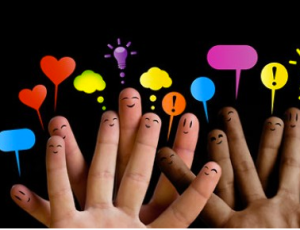 When a video like Kony 2012 goes viral, what does it show us?
When a video like Kony 2012 goes viral, what does it show us?
Hopefully, it means that there is still some empathy left within our societies. Even if consumerism and individualism are taking its toll. But from time to time, we are still shaken and awaken by the things that go on in the world we live in. That kind of empathy, however, is becoming rare.
We don’t even have to go as far as the child soldiers in Africa. Poverty and inequality, violence and environmental degradation happen right in front of us. No matter where we live. Similarly, the global initiative Ashoka Changemakers realizes that if things must get better in the future, we need more empathy. They write nicely:
“Empathy is more than just awareness and concern. It is about cultural sensitivity and conflict resolution. It’s about the ability to communicate effectively and understand the motivations of others. Empathy is about standing up, not standing by, uncovering what’s below the surface through active listening and putting words into action.”
But how do people become more empathic? Bansi Kara writes in the Death of Empathy that schools are not building a basis for a empathetic society: “the curriculum (when we have one coherent one) ignores this life skill – it is overlooked by those who design the curriculum, perhaps out of a mistaken belief that it is not a teacher’s responsibility to develop levels in empathy in children.” It’s supposed to be a by-product, Kara explains. But somehow that doesn’t seem to work out too well.
That is probably why Ashoka feels the need to actively promote the teaching of empathy in schools. Until the end of the month you can join the conversation on how to do that and possibly win funds to implement your ideas.
If Kony 2012 is the right approach to the problem can be debated. That debate, however, means that the story has finally reached the agenda. It took us a while to care about what is happening in Uganda and it might take us even longer to care about all the other – changeable – atrocities happening in the world, but it’s about time we start. Giving the next generation the amazing tool of empathy is crucial for a better future for this planet.

Western consumerist societies tend to be very inwardly-focused. Over the past ten years our cultures have turned to the right politically, which also tends to be very inwardly-focused. Such individuals and societies can and do experience empathy and compassion, but it is defined and expressed in different terms. Many such people feel that their generosity has been taken advantage of previously, so their empathy and compassion are now often expressed in indirect ways. Situations often call for more direct action though, so what is needed is two approaches: one approach to immediately address the needy, and another approach to remove the defensive nature many other people have built around their empathy and compassion. Educating children is a wonderful way to address the latter, and their lifestyles may then impact the former.